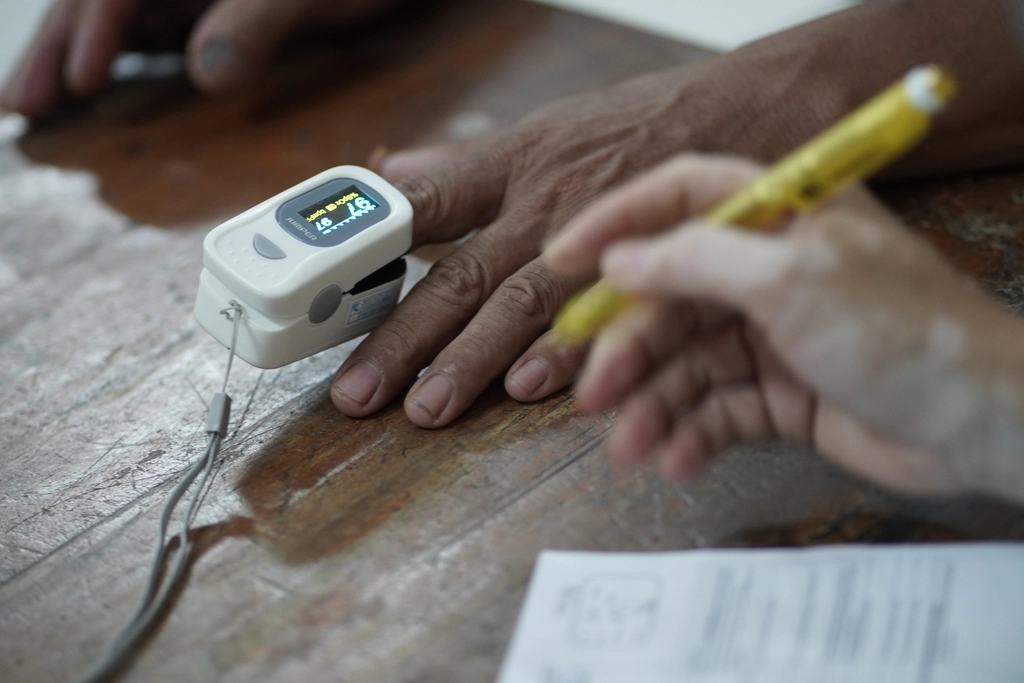Your heart rate does more than just keep you alive—it’s a window into your fitness level, an essential workout guide, and a warning signal for potential health issues.
Here’s everything you need to know about your pulse.
What Is a Normal Heart Rate?

A normal resting heart rate (RHR) typically falls between 50 and 100 beats per minute (bpm). A heart rate above 100 bpm at rest is considered too high (tachycardia), while one below 50 bpm may be too low (bradycardia). However, well-trained athletes often have RHRs below 50 without any issues.
What Is a Healthy Heart Rate?

Generally, a lower resting heart rate indicates better cardiovascular health. A strong heart pumps more blood per beat, meaning it doesn’t have to work as hard. A consistently high RHR can be linked to shorter life expectancy, while a lower RHR often signals a longer lifespan.
How High Should My Heart Rate Be?

Your heart rate varies depending on age and activity level. Beyond resting heart rate, it’s helpful to know your working heart rate (during physical activity) and maximum heart rate (the highest beats per minute your heart can reach under stress). You can estimate your max heart rate with the formula: 220 minus your age.
How Much Should You Raise Your Heart Rate Daily?

Health experts recommend at least 30 minutes of moderate exercise daily, which means raising your heart rate to 50-70% of your max. This could be brisk walking, cycling, or even doing household chores like gardening or cleaning.
When Is a High Heart Rate Dangerous?

If your resting heart rate is consistently over 100 bpm, it may indicate an underlying heart condition. Warning signs include heart palpitations, dizziness, breathlessness, and chest discomfort. If you experience these symptoms, seek medical attention.
What Does a Low Heart Rate Mean?

A heart rate below 50 bpm isn’t always bad—it’s common in athletes. However, if you experience fatigue, dizziness, or fainting along with a low heart rate, it could signal an issue such as an electrolyte imbalance or an underactive thyroid.
Normal Heart Rate for Seniors

As we age, our heart rate naturally changes. Here’s a general breakdown:
- Men over 65: 50-79 bpm (below 50 or above 80 may indicate health concerns)
- Women over 65: 54-84 bpm (a pulse higher than 84 may be a warning sign)
Heart Rate vs. Blood Pressure

While heart rate measures how many times your heart beats per minute, blood pressure measures the force of blood against your arteries. A normal blood pressure is around 120/80 mmHg. High blood pressure combined with a high heart rate can increase the risk of heart disease.
How to Measure Your Heart Rate

You can check your pulse by placing two fingers on your wrist, neck, or ankle and counting beats for 15 seconds, then multiplying by 4. Alternatively, you can use a fitness tracker, heart rate monitor, or a smartphone app for a more precise reading.
Improve Your Heart Rate with Exercise

Regular cardio workouts can lower your resting heart rate and strengthen your heart. To see improvements:
- Aim for 3-5 workouts per week, including activities like running, cycling, or swimming.
- Use heart rate zones to guide your workouts:
- Zone 1 (50-60% of max HR): Light exercise, good for warming up.
- Zone 2 (60-70%): Moderate intensity, builds endurance.
- Zone 3 (70-80%): Improves cardiovascular fitness.
- Zone 4 (80-90%): Intense training, boosts speed and stamina.
- Zone 5 (90-100%): Maximum effort, best for short bursts of activity.
A well-trained heart beats slower and stronger, reducing the strain on your cardiovascular system and improving overall health.
Article is based on information from Iform.
